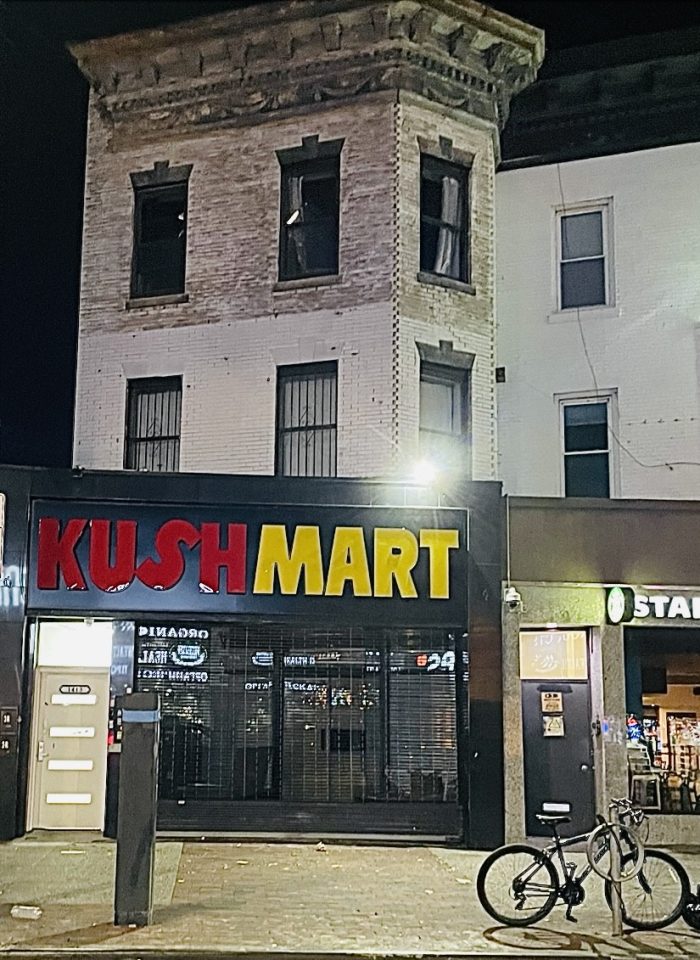On a humid summer afternoon in Washington Heights, a teenage James Adames lit up in an alleyway he thought was safe. The ritual was familiar, but so was the risk. At just 16, he was stopped, frisked, and arrested for cannabis. Three nights in jail followed. “It was a very scary experience,” he remembers.
What should have been a single mistake became a cycle. Adames smoked in the same alleys where police knew to look. Before long, the same detective was targeting him on specific days of the week. “I was a huge consumer, so I got arrested for consuming cannabis in alleyways I used to smoke at. It got to a point that I was targeted by the same detective every Tuesday and Thursday when detectives are on the beat searching for people buying or selling weed.”
By his early 20s, the cycle caught up with him. He was sentenced to four months on Rikers Island. “I was in prison with only four months to do, sleeping next to other inmates facing life,” he says. The proximity to men who might never see freedom again left an impression. Inside, he realized he had to let go of the plant he loved most. “I had to quit what I love most, which was cannabis, because at that time it was illegal.”
Release and Reinvention
The day he was released, Adames went straight to the Mayor’s Office looking for a way forward. He signed up for the Made in NY Production Assistant Training Program, a four-week crash course run out of the Brooklyn Navy Yard by Brooklyn Workforce Innovations. “I first heard about Made in NY upon my release from prison. I visited the Mayor’s Office the very same day I was released and signed up.”
Soon he was on set, shadowing crew members, asking questions, learning how productions came together. “I was eager to learn everything on set and what each and every department was and did, working as an intern, then production assistant to get a lay of the land and see which department I would thrive most at.”
The breakthrough came on Pan Am, a short-lived network series. “It was my first gig working in the locations department. Locations is the first one on set and the last one on set and allows you to meet everyone from every department, including A-list actors and above-the-line executive producers.” The work grew from there. Before long, he was producing crime documentaries for networks like Netflix and the BBC, telling stories of drug dealers, cartel members, and law enforcement.
The Leap Back to Cannabis
When New York launched its Conditional Adult-Use Retail Dispensary (CAURD) program, prioritizing applicants with cannabis convictions, Adames saw a chance to reconnect with the plant. “I first heard about the CAURD program via the Mayor’s Office.”
The process tested him. “Finding a compliant location, injunctions being placed, shady landlords, going through OCM’s long review process,” he says, listing the hurdles. But eventually, Kushmart opened in Brooklyn in early 2025. It was one of the few licensed dispensaries in a city crowded with gray-market shops.

Expansion came next. Locked into a Long Island license that couldn’t be moved, he looked beyond New York. “My CAURD license was originally for the Long Island region and OCM at that time would not let licensees move locations outside of the region you first applied for. So I decided to expand outside of NYC until I was able to move my license. I began applying in other states.” Today, Kushmart has locations in Buffalo, New Jersey, and Minnesota.
Survivor’s Guilt
Success has never felt uncomplicated. “I don’t reconcile it. Every day I have survivor’s guilt,” Adames admits. While he runs dispensaries legally, friends from his old neighborhood remain behind bars.
He also carries frustration with New York’s uneven enforcement. “I feel OCM and the Sheriff’s Office can do a better job at enforcing illegal smoke shops. I have personally provided lots of proof that one would think would get an illegal shop closed, but I have yet to see any results besides them telling me it’s under investigation.”
For him, success is personal, not financial. “The only success I personally care about is knowing my mom and three kids are always at peace now, knowing their dad and son would not be going away to prison anymore simply because I love cannabis. Thanks to the Mayor, Governor, and Office of Cannabis Management.”
Rewriting His Script
Adames sees his current role as an extension of the storytelling he once did from behind the camera. “As a crime documentary producer my main job was to tell compelling stories from the perspectives of drug dealers, cartel members, and law enforcement. I apply the same with myself and my many businesses. The only difference now is that I’m in front of the camera telling my own story.”
If given the chance, he’d turn that story into a show of its own. “High Times at Kushmart: The James Adames Story. Rewriting his life’s script. I would share my life story to give the youth a glimpse into my life and the many obstacles I faced and how I overcame them, hoping to inspire the youth.”
His long-term vision is simple. “To take it nationwide.”
From a scared teenager in a jail cell to a man opening dispensaries across state lines, James Adames is living proof that legalization can mean more than revenue projections. It can mean liberation, responsibility, and a shot at rewriting the script.
Photos courtesy of James Adames
The post How a Rikers Sentence Sparked a New Life in Cannabis: The James Adames Story first appeared on High Times.

